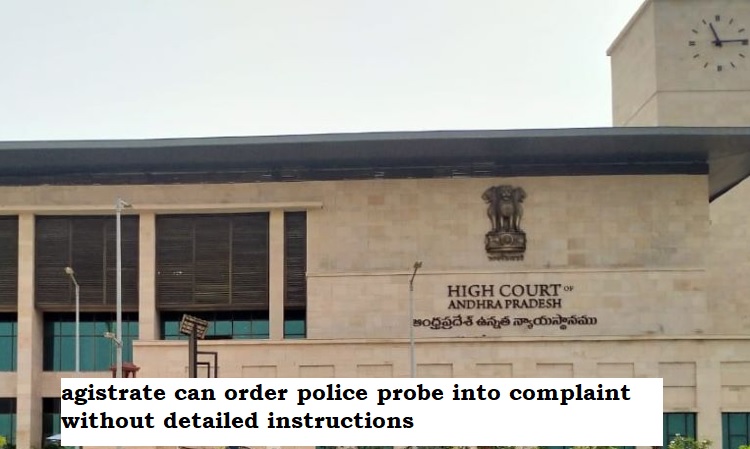


In a recent legal development, the Andhra Pradesh High Court rendered a decision that upheld the actions of a Magistrate in forwarding a complaint to the police, consequently dismissing a quashing petition filed by the accused. The case involved a petitioner who had been appointed as a single trustee in 2008 to fulfill the role of Archaka in a temple. Allegations of mismanagement, dishonesty, and misappropriation of funds led to the petitioner's removal from duties, prompting the de facto complainants to file a written complaint with the Magistrate.
The Magistrate, upon receiving the complaint, exercised discretion by referring it to the Station House Officer (SHO) for investigation and a subsequent report. Following this directive, an FIR was registered, and in the ensuing chargesheet, the petitioner faced charges related to cheating and dishonestly inducing the delivery of property.
However, the petitioner contended that certain procedural aspects, as outlined in Section 154 of the Code of Criminal Procedure (CrPC), were not adhered to. According to the petitioner, before approaching the Magistrate, the complainant should have attempted to register an FIR with the police. Only if the police failed to register the FIR, the grievance should have been brought before the Superintendent of Police. The written complaint, in this case, purportedly lacked compliance with these procedural prerequisites.
Additionally, the petitioner argued that an order issued by the Magistrate under Section 156(3) should contain concise reasons justifying the forwarding of the complaint to the police for investigation. In this instance, the petitioner contended that the order lacked such reasons, thereby failing to meet the standards set by a decision of the Hon'ble Apex Court, specifically referring to The Assistant Public Prosecutor. The petitioner raised concerns about the procedural integrity of both the complaint and the order, asserting that they failed to align with established legal principles.
The Assistant Public Prosecutor and counsel for the de facto complainants countered these arguments, asserting that the allegations presented in the chargesheet prima facie disclosed cognizable offenses and, therefore, could not be summarily quashed. They contended that the Magistrate's decision to forward the complaint to the police for investigation was well within the bounds of legal discretion provided under Section 156(3) of the CrPC.
The crucial question before the court was whether the presented facts indicated the potential violation of the accused's procedural or substantive rights, warranting the court to exercise its powers under Section 482 of the CrPC to quash the proceedings.
Upon careful consideration, the court observed that the chargesheet, in its current form, contained serious allegations of misappropriation of funds, including unaccounted lease amounts and land acquisition compensation. These allegations constituted cognizable offenses, necessitating a detailed and thorough investigation. The court acknowledged the presence of conflicting claims and denials of facts, emphasizing that a trial was essential to uncover the truth.
Ultimately, the court rejected the petitioner's plea for quashing the proceedings, underscoring the need for a comprehensive investigation into the alleged cognizable offenses. The decision reinforced the Magistrate's discretionary authority to refer a complaint to the police under Section 156(3) of the CrPC, particularly when faced with serious accusations that demand a closer examination through a legal trial.
TAGS: Procedural lapses Section 154 CrPC uperintendent of Police Section 156(3) CrPC